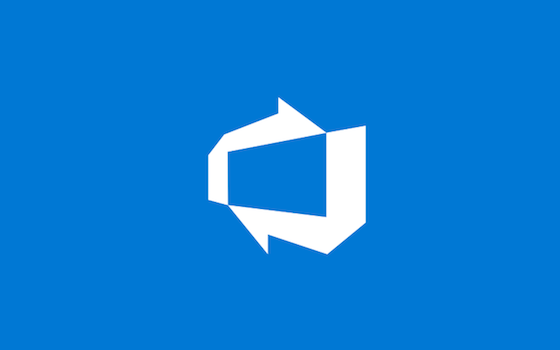Azure DevOps Blog
DevOps, Git, and Agile updates from the team building Azure DevOps
Latest posts

Effective Patterns for Feature Flags
Today, we are inviting Edith Harbaugh from LaunchDarkly as a guest writer for the ALM Blog to talk a little bit about the different patterns of Feature Flag implementations which has been a common topic I get asked about from many of you. If you didn't see it, Edith joined us on stage at Build 2016 earlier this year to launch a new marketplace extension of their feature flags service with Visual Studio Team Services. Ed Blankenship Product Manager, Visual Studio Team Services Follow @edblankenship A question I get asked is “Are feature flags better for risk mitigation, fast feedback, hypothesis-driven develo...

Remote testing – Distributing tests based on number of machines
With Sprint 102 deployment on Visual Studio Team Services, we have enabled tests from within an assembly to be distributed to remote machines using the Run Functional Tests task (formerly called Run Tests using Test Agent). This has been one of the bigger asks from customers around Remote testing. You will see a new check box in the task as below. Instead of distributing tests at the assembly level, enabling this setting will distribute tests based on the number of machines irrespective of the container assemblies given to the task. Please try it out (see https://blogs.msdn.microsoft.com/visualstudioalm/2015...

General availability of Azure DevTest Labs – VSTS extension
A couple of weeks ago, we announced the general availability of Azure DevTest Labs. As part of the announcement we introduced the preview of Azure DevTest Labs – VSTS extension. Today, we are delighted to announce the general availability (GA) of the extension. Figure 1: Azure DevTest Labs – VSTS extension It consists of three tasks that will allow you to easily integrate your build or release pipeline in VSTS with DevTest Labs to create your testing environment, golden images, and more! ...

VSTS Process Customization futures (June 2016)
The first wave of work for process customization is complete: allowing you to modify fields, layout and states of existing work item types. While it’s taken longer than we had anticipated, we’ve received a ton of great feedback and our plan is to continue to work through the backlog. With the summer season beginning, I wanted to update our rough timeline of when we expect to deliver the next set of process customization scenarios. NOTE: The timeline is subject to change and all the designs below are early mocks to land concepts - we have lots more UX and design work to do before completing these items. Crea...

States customization on Team Services
The first milestone in bringing states customization to Team Services is here. With the latest deployment, you can customize the states on your inherited work item types. Let’s jump into the new functionality. Adding custom states Adding new states starts from the process administration page. Here you can view all the states for a work item type, and add and modify them as needed. To add a new state, simply click “New state” on the toolbar. Provide a name, state category (more on state categories later), and color for your state. When typing a name in the dialog, the dropdown offers suggestions on state...

Taking the MSTest Framework forward with “MSTest V2”
Recently, we announced MSTest Framework support for .NET Core RC2 / ASP.NET Core RC2 - this is "MSTest V2" as we fondly call it, and the release sets the direction for how we intend to evolve the MSTest framework. First, some context ... In Visual Studio we have an open and extensible test platform with tests being written using various test frameworks and executed using a variety of adapters. As a test platform we take a pluralistic approach, leaving the choice of test framework to the customer. And there now exists an ecosystem of test frameworks and adapters. The MSTest framework occupies a distinct position...

Team Services ending support for Internet Explorer 9 and 10 in September
In September 2016, Team Services will be ending support for Internet Explorer 9 and 10. If you use Internet Explorer 9 or 10 to connect to Team Services, you will notice a new banner reminding you that support will end in September. Although we will not explicitly block IE9 and 10, you may see a degraded or broken experience starting in September. You can upgrade to IE11 or use one of our other supported browsers (the most recent version of Edge, Firefox, or Chrome). You can find the current supportability of Internet Explorer versions for your operating system here. For those using on-premises TFS, our next...

The Maven build task now supports PMD analysis out of the box
Simple Java static analysis tools In addition to working on the SonarQube integration, we received feedback from some of you that you would like the Maven and Gradle tasks to perform static analysis using common Java tools such as PMD, CheckStyle, and FindBugs. These tools are also supported though SonarQube plug-ins, and most of their rules are also part of the SonarQube Java plug-in, but that requires installing a SonarQube server. Therefore, we have also been working on supporting simple static analysis tools for Java, beginning with PMD in the Maven build task. PMD Analysis with Maven You can now request a...

The Gradle build task now supports SonarQube analysis
SonarQube analysis for Java In October, we updated the Maven task to support SonarQube analysis (See The Maven build task now simplifies SonarQube analysis). This time, we are pleased to announce an updated Gradle task which makes it easy for Java developers using Gradle to trigger a SonarQube analysis in Visual Studio Team Services. Using the Gradle task with SonarQube Just as for Maven, we have added a Code Analysis section in which you can now check the “Run SonarQube Analysis” checkbox, which then shows more options. You will need to provide: You can also further customize the analysis either by p...
